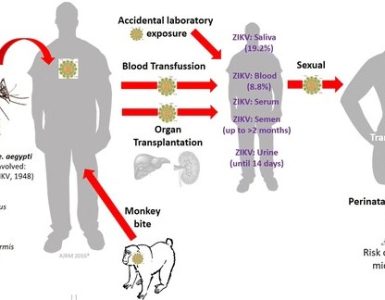 Researchers have discovered that the pandemic 2009 H1N1 vaccine can generate antibodies that protect against a variety of flu strains.
Researchers have discovered that the pandemic 2009 H1N1 vaccine can generate antibodies that protect against a variety of flu strains.
The discovery brings scientists closer to designing a “universal” influenza vaccine that reliably induces broadly cross-reactive antibodies at sufficiently high levels to protect against different influenza subtypes.
“Our new finding is a key step in the development of a vaccine that can produce high levels of antibodies that protect against multiple flu strains, including challenging mutations that have the potential for widespread illness and death,” says Rafi Ahmed, director of the Emory Vaccine Center at Emory University and senior author of the study published in the Proceedings of the National Academy of Sciences.
The researchers analyzed B cell (antibody) responses in 24 healthy adults immunized with the inactivated pandemic 2009 H1N1 vaccine. Vaccination caused a rapid increase in production of monoclonal antibodies that were capable of neutralizing multiple flu strains.
Three of the antibody types also were able to stick to the “stalk” region of the virus that does not change as much as other regions and thus could provide a basis for a vaccine with broader and more reliable protection.
Antibodies that are broadly reactive against multiple influenza strains are rarely seen in people after infection or vaccination with seasonal flu, the authors note. In the 24 vaccinated individuals in the current study, the majority of flu antibodies neutralized more than one influenza strain and also seemed to be the result of B-cell memory resulting from previous exposure to other flu strains.
“Since discovering last year that people infected with the H1N1 2009 virus produced antibodies against multiple flu strains, our goal has been to test this ability in vaccinated individuals,” says Ahmed.
The next step for the research team will be to improve on their results and develop a vaccine that produces high levels of antibodies and can reliably protect against multiple flu subtypes.
Collaborators include scientists from Emory University, the University of Chicago, and National Institutes of Health, which supported the work. Emory University and the University of Chicago have an industry licensing agreement on the influenza-virus-specific human monoclonal antibodies under which Rafi Ahmed, Jens Wrammert and Patrick C. Wilson may benefit.
Source: Futurity.org

















